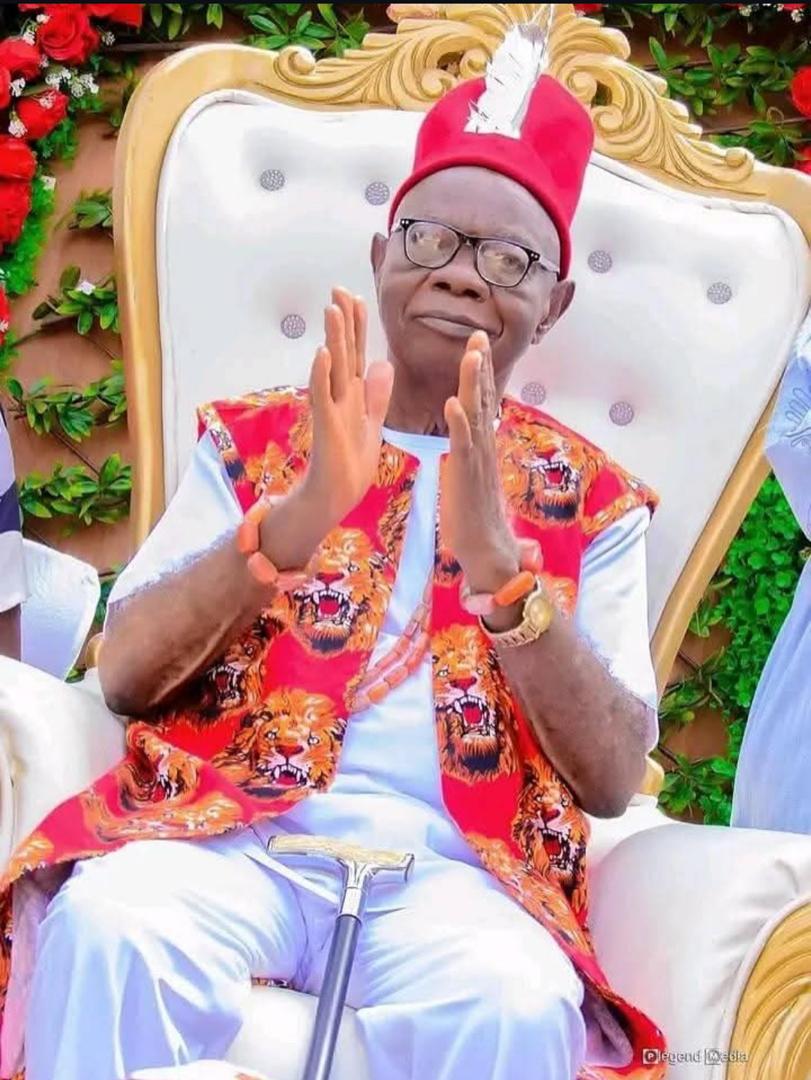Early Life and Musical Genesis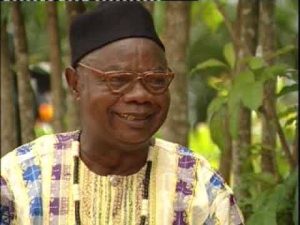
Mike Ejeagha, affectionately dubbed the “Gentleman of Highlife,” was born on April 4, 1930, in Imezi Owa, located in Ezeagu Local Government Area, Enugu State. Raised in southeastern Nigeria at a time when oral storytelling and folklore were deeply respected, young Mike was immersed in Igbo proverbs, parables, and traditional chants. This upbringing would later define his musical signature.
By the 1940s, Ejeagha’s musical passion had led him to join the Coal City Boys, and soon afterward, he formed his own ensemble, the Merry Makers. A gifted guitarist, he quickly became a household name in Enugu’s growing entertainment scene.
Radio and TV Fame: The “Akuko N’egwu” Revolution
His major national break came when Nigerian Broadcasting Corporation (NBC) and later NTA Enugu picked up his unique storytelling style. The show “Akuko N’egwu” (Stories in Music), which aired in the 1970s and 80s, revolutionized how music was used to pass on cultural values.
Ejeagha would take timeless Igbo folktales and embed them in highlife compositions, using his calm voice and meticulous guitar strumming. His music wasn’t just to entertain — it was to educate and preserve the culture of a people.
Music That Taught Generations
Mike Ejeagha produced over 300 songs during his career. His hits include:
-
“Ka Esi Le Onye Isi Oche”
-
“Ukwu Ka Nma”
-
“Omekagu”
-
“Gwo Gwo Gwo Ngwo”
His songs were loaded with lessons on morality, respect, marriage, tradition, and leadership. No wonder he was referred to as a “musical philosopher”.
His storytelling style gave him a niche among Nigeria’s highlife musicians, setting him apart from contemporaries like Chief Osita Osadebe and Oliver De Coque.
️ National and Cultural Honours
Despite being somewhat reserved and soft-spoken, Mike Ejeagha attracted attention at all levels of society. He received numerous lifetime achievement awards, cultural recognitions, and traditional titles across Igbo land. However, a few recent honours stand out for their cultural and political significance:
Governor Peter Mbah’s Historic Visit
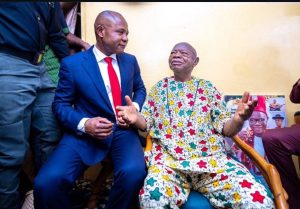
In October 2023, the Governor of Enugu State, Dr. Peter Ndubuisi Mbah, paid a surprise visit to Mike Ejeagha at his home in Abakpa Nike, Enugu. The visit was in recognition of Ejeagha’s immense contribution to Igbo heritage and global music. Governor Mbah described him as a living legend, vowing to support his health and wellbeing.
This gesture was deeply appreciated by the Nigerian public, especially those advocating for more support for ageing cultural icons.
Comedian Brain Jotter’s Viral Tribute
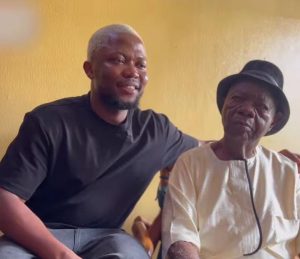
In 2024, top Nigerian comedian Brain Jotter (real name: Chukwuebuka Emmanuel Amuzie) paid a heartfelt visit to Mike Ejeagha, gifting him a cash donation and other support. The visit trended widely on social media.
The video clip of Brain Jotter bowing respectfully before the music veteran struck a chord across Nigeria, with thousands praising the comedian’s humility and awareness. The content created from that encounter reached millions of views, bringing Ejeagha’s legacy back into youth consciousness.
Mike Ejeagha Road – A Street Named in Honour
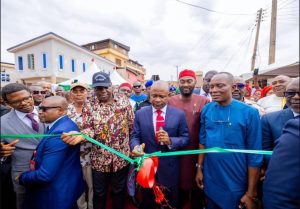
To immortalize him, the Enugu State Government named a prominent road in Abakpa area of Enugu East LGA after him — “Mike Ejeagha Road.”
This renaming not only honoured the man but symbolized a commitment to preserving his legacy in the heart of the state where his music originated.
Cultural Preservation Work and Archive Recognition
Mike Ejeagha wasn’t only about entertainment. In the 1980s and 90s, he worked with the University of Nigeria Nsukka (UNN) and Federal Ministry of Culture on a massive folklore documentation project. His goal? Record thousands of Igbo folktales and proverbs, so they wouldn’t be lost to modernity.
These audio files now sit preserved in Nigeria’s National Archives and some international academic institutions. He also encouraged young musicians to learn in their local language, a principle he called “cultural musical identity.”
Final Years and Peaceful Passing
Ejeagha spent his final years at his family home in Abakpa, Enugu, where he was cared for by relatives and fans who occasionally visited. Sadly, after a long illness, he passed away peacefully on June 6, 2025, at the age of 95.
His son, Emmanuel Ejeagha, confirmed the news. Many Nigerians described the loss as “the end of an era.”
️ National Mourning and Global Tributes
The announcement of his death led to an outpouring of grief and celebration of his legacy:
-
Governor Peter Mbah again praised his lifelong impact and promised a state-assisted funeral.
-
Nigerian musicians, including Flavour, Phyno, and Zoro, posted tributes.
-
Cultural groups across Southeast Nigeria held folk music nights and tribute dances.
-
In the diaspora, Igbo communities in London, Houston, and Toronto held candlelight vigils.
Why Mike Ejeagha’s Legacy Matters
For readers and researchers in African culture, language preservation, and musicology, Ejeagha’s work serves as an invaluable asset. His story is also useful in sectors like:
-
Digital education (for using indigenous content in learning)
-
Cultural tourism (his home could become a heritage museum)
-
Creative media (Netflix, Nollywood, and documentary filmmakers have source material)
-
Government and policy (for setting up endowment funds for ageing artists)
How to Listen to Mike Ejeagha Today
Mike Ejeagha’s music has seen a resurgence, especially among younger Igbo-speaking fans. Here’s where you can stream or download his music:
-
[Spotify – Mike Ejeagha Playlist]
-
Audiomack, Boomplay, and other Nigerian platforms
Final Thoughts: The Gentleman Lives On
Mike Ejeagha was more than a musician — he was a custodian of Igbo identity. In an era where globalization often dilutes local culture, his voice stood like an oak tree — firm, wise, and unshakably Nigerian.
As Nigeria continues to redefine its cultural future, legends like Mike Ejeagha offer a template for authenticity, grace, and artistic excellence.
